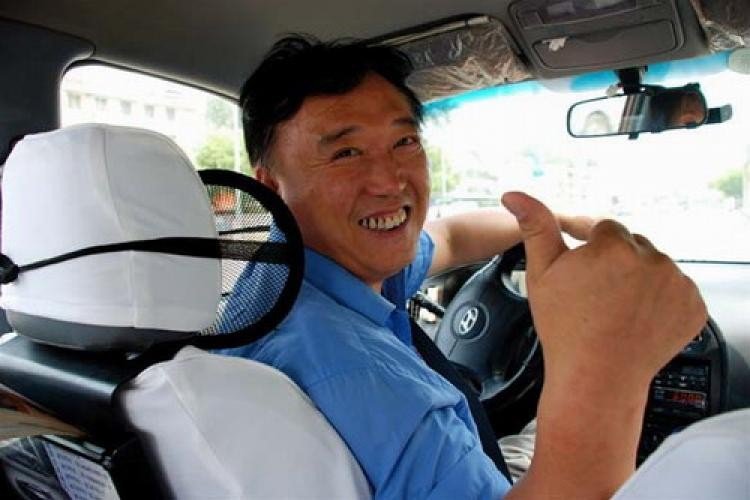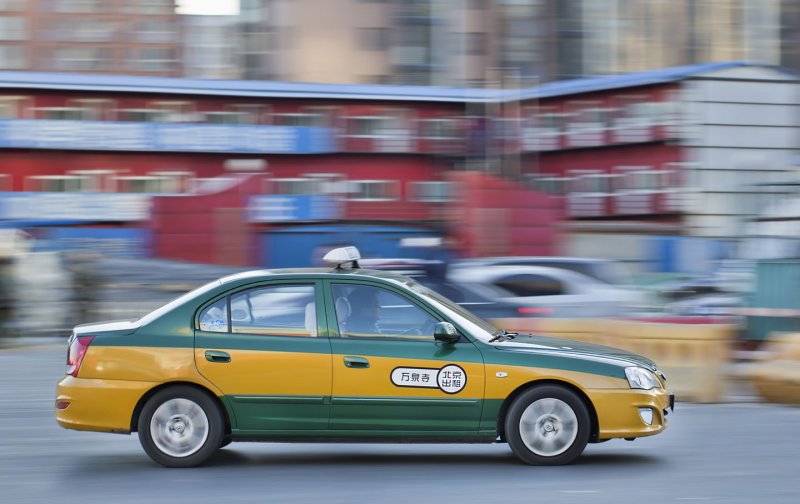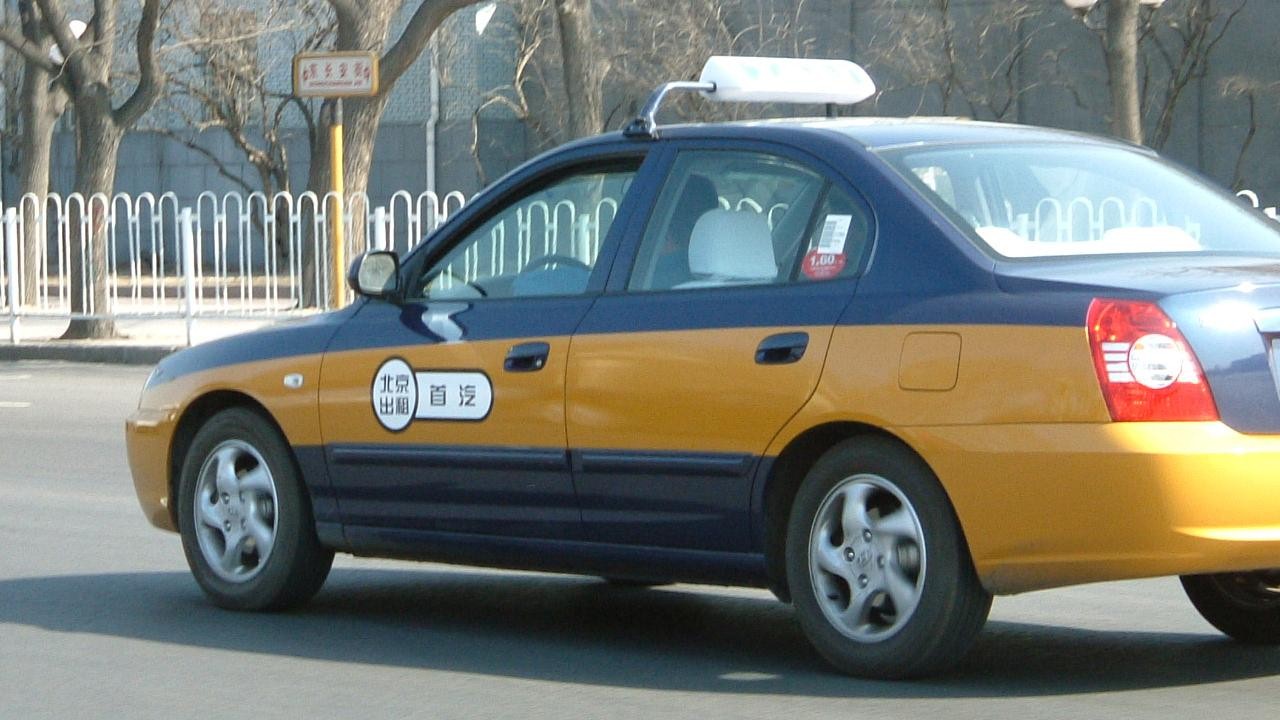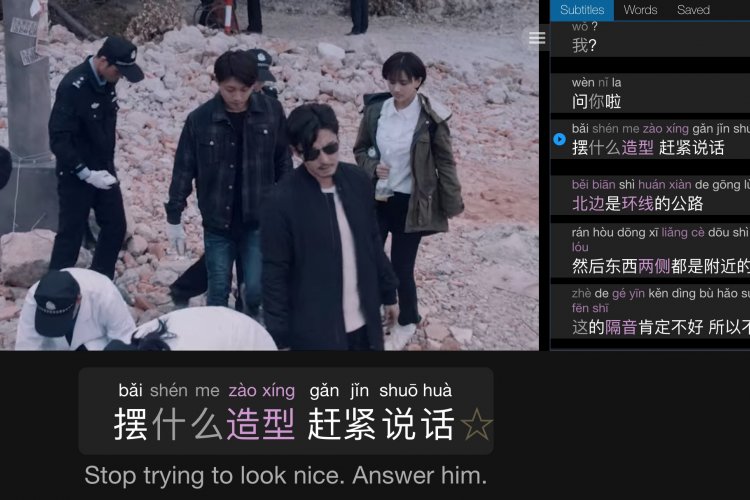‘Sorry, I Don’t Understand’: A Cheeky Guide To Chatting With a Beijing Taxi Driver
Picture this: The car pulls up as waimai drivers do their best to impede you from opening the door, but you succeed anyway. You choose the back seat because everyone wants to feel special. The door closes with a bit of panache – it’s been one of those days – and the driver looks at you through the rear-view mirror with nonchalant eyes to confirm your number.
You nod, uncertain you understood anything he said, and before you can even pull out your phone and sink into the reassuring caress of the digital world, he asks that fated question you’ve been haunted by every day as a foreigner: 你是哪个国家的人 Nǐ shì nǎge guójiā de rén (Where are you from)?
Face it, Beijing drivers are a chatty bunch, and they’ve been known to ask some outright strange questions. They have good intentions and are genuinely curious, but the next time a driver asks 你的工资是多少 Nǐ de gōngzī shì duōshǎo (How much is your salary)? I might just have a conniption. In this circumstance, it’s polite to indulge them.

They mean no harm and just want to know every detail of your finances. So, grit your teeth and let it fly. There are two options here: politely decline to answer with a cheeky tone – 这是一个秘密 Zhè shì yīgè mìmì (It’s a secret) – or really put it out there and see how he responds, 五万人民币 Wǔ wàn rénmínbì (RMB 50,000). It’s all in good fun, and they understand the delicate dance it takes to communicate with a foreigner who barely knows how to count to 100.
Now that money is out of the way, they’ll nod and understand your answer – whatever it may be – and turn to more pressing matters: 你喜欢中国菜吗 Nǐ xǐhuān zhōngcān ma (Do you like Chinese food)? Now might be a good time to practice some of the vocabulary you’ve loaded on Rosetta Stone but barely reviewed. First, respond in the affirmative – 我喜欢 Wǒ xǐhuān (I like).
No need to specify what you like; it’s implied in the grammar. Now you can pull out the big guns and impress them with all the Chinese staples: 饺子 jiǎozi (dumplings), 宫保鸡丁 gōngbǎo jīdīng (kung pao chicken), 火锅 huǒguō (hot pot), 北京烤鸭 Běijīng kǎoyā (Beijing duck), and don’t forget to sprinkle in a bit of 米饭 mǐfàn (rice) just to catch them off-guard. After all, we aren’t so different in the end!
Now that your dinner menu has been established, they might press you on your marital status, depending on if you’re on the wrong side of 25. It’ll come with a wry smile, so be prepared. They might massage this line of inquiry by asking 你今年多大 Nǐ jīnnián duōdà (How old are you?) just to be polite, but then launch into a full-scale assault on the nature of your love life. Don’t be concerned. Take a deep breath and say 我结婚 Wǒ jiéhūn (I’m married) or 我单身 Wǒ dānshēn (I’m single).

This should alleviate any stress that has been building up in the car over your finances. He’ll either be able to relate to your marriage or envy your single life because with an almost 100 percent rate of return all Beijing drivers are married with children.
Just as the conversation is beginning to get awkward, you’ll arrive at your destination. From time to time, they may ask 我们可以一起拍照吗 Wǒmen kěyǐ yīqǐ pāizhào ma (Can we take a photo together?) which you’ll accept depending on how well the conversation went. Later that night when you need to get another car to go home, you’ll recall just how invigorating the interaction was.
In fact, you’ll relish the opportunity to repeat it again, and again, and again, until finally one day you’ll grow weary of stock conversations and chit-chat and develop the habit of getting into a taxi with a determined demeanor and a single response.
对不起,我听不懂 Duìbùqǐ, wǒ tīng bù dōng
Sorry, I don’t understand.
READ: Mandarin Monday: Good Morning C, Good Night A, the Year in Chinese Internet Slang
Images: The Beijinger, sinologyinstitute.com, The Nation







